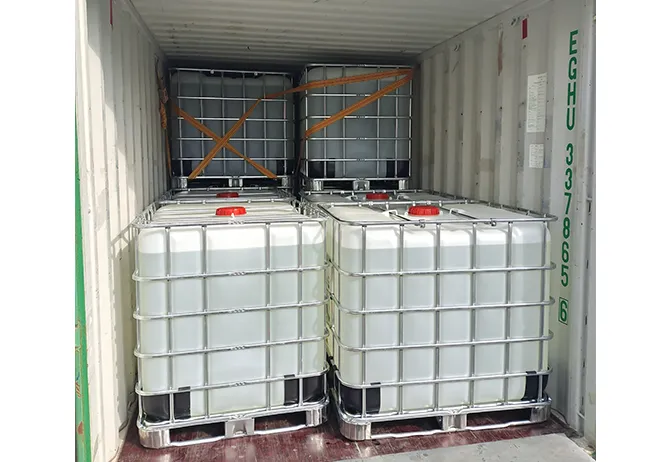
Exploring the Benefits and Risks of E282 Preservative in Food Products
Understanding E282 Preservative Safety, Uses, and Concerns
In the realm of food additives, preservatives play a crucial role in enhancing the shelf life and safety of various products. Among these, E282, also known as calcium propionate, stands out for its unique properties and widespread use. Derived from propionic acid, calcium propionate is a white crystalline powder that is primarily utilized to prevent mold and bacterial growth in baked goods. This article explores the applications, safety measures, and concerns regarding E282, providing a comprehensive overview for consumers and food industry professionals alike.
What is E282?
E282, a calcium salt of propionic acid, is recognized for its effectiveness as a food preservative. As a natural compound, it occurs in certain fermented foods; however, industrially, it is synthesized to meet the demands of food production. With an E-number classification of E282 in the European Union, it finds its primary application in bread, bakery products, and certain dairy items.
Applications of E282
The primary purpose of E282 is to inhibit the growth of molds and bacteria, particularly in baked goods. This is crucial not only for extending the shelf life of products but also for maintaining their quality and safety. When added to bread, for example, calcium propionate can significantly delay spoilage, allowing consumers to enjoy fresher products for longer periods. While its most common application is in the bakery sector, E282 is also used in cheese and processed meats, where it serves similar preservative functions.
In addition to its role as a preservative, E282 is sometimes employed as a mold inhibitor in animal feed, especially in feeds stored for extended periods. Its ability to inhibit mold growth is beneficial in preventing spoilage and ensuring the nutritional integrity of livestock feed.
Safety and Regulatory Status
e 282 preservative

E282 has been the subject of numerous safety evaluations, and regulatory authorities such as the Food and Drug Administration (FDA) in the United States and the European Food Safety Authority (EFSA) have deemed it safe for consumption within specified limits. The acceptable daily intake (ADI) of E282 has been established as not specified by the EFSA, which suggests the additive is considered safe when used according to good manufacturing practices.
Moreover, calcium propionate is recognized for its low toxicity levels. Studies have shown that E282 does not accumulate in the body, and it is typically excreted without significant metabolic alteration. This aspect highlights its safety profile compared to some artificial preservatives, which may be linked to various health concerns.
Concerns and Controversies
Despite its safety approval, some concerns have been raised regarding the potential side effects of E282, particularly among sensitive individuals. A small number of people may experience allergic reactions, although such cases are rare. There are also discussions about the long-term health impacts of consuming products containing E282, especially in the context of a diet rich in processed foods.
Furthermore, as consumer demand for clean-label products continues to grow, there is an increasing skepticism toward all food additives, including preservatives like E282. Many consumers are becoming more health-conscious, seeking to avoid ingredients perceived as artificial or unnecessary.
Conclusion
E282, or calcium propionate, serves as an essential preservative in the food industry, particularly in baked goods. Its ability to extend shelf life and maintain product quality makes it a valuable additive. With regulatory bodies affirming its safety, E282 provides a practical solution for preventing spoilage. However, as consumers become more critical of food additives, industry stakeholders must remain transparent about their use and continue to explore natural alternatives.
In summary, E282 is a widely accepted preservative that plays a key role in food preservation. As we navigate a landscape of evolving consumer preferences and health considerations, understanding the role and implications of such additives is essential for informed decision-making in both food production and consumption. The balance between safety, quality, and consumer concerns will shape the future of E282 and similar preservatives in our daily diets.
-
Pure Sodium Dichloroisocyanurate Dihydrate | Powerful DisinfectantNewsAug.29,2025
-
Industrial Chemicals: Quality & Purity for Every IndustryNewsAug.28,2025
-
Nitrile Rubber Honoring Strict Production StandardsNewsAug.22,2025
-
Aspartame Ingredients Honoring Food Safety ValuesNewsAug.22,2025
-
Fertilizer for Balanced Plant NutritionNewsAug.22,2025
-
Cyanide Gold Processing with High Purity AdditivesNewsAug.22,2025
-
Formic Acid in Textile Dyeing ApplicationsNewsAug.22,2025
Hebei Tenger Chemical Technology Co., Ltd. focuses on the chemical industry and is committed to the export service of chemical raw materials.
-

view more DiethanolisopropanolamineIn the ever-growing field of chemical solutions, diethanolisopropanolamine (DEIPA) stands out as a versatile and important compound. Due to its unique chemical structure and properties, DEIPA is of interest to various industries including construction, personal care, and agriculture. -

view more TriisopropanolamineTriisopropanolamine (TIPA) alkanol amine substance, is a kind of alcohol amine compound with amino and alcohol hydroxyl, and because of its molecules contains both amino and hydroxyl. -

view more Tetramethyl Thiuram DisulfideTetramethyl thiuram disulfide, also known as TMTD, is a white to light-yellow powder with a distinct sulfur-like odor. It is soluble in organic solvents such as benzene, acetone, and ethyl acetate, making it highly versatile for use in different formulations. TMTD is known for its excellent vulcanization acceleration properties, which makes it a key ingredient in the production of rubber products. Additionally, it acts as an effective fungicide and bactericide, making it valuable in agricultural applications. Its high purity and stability ensure consistent performance, making it a preferred choice for manufacturers across various industries.





